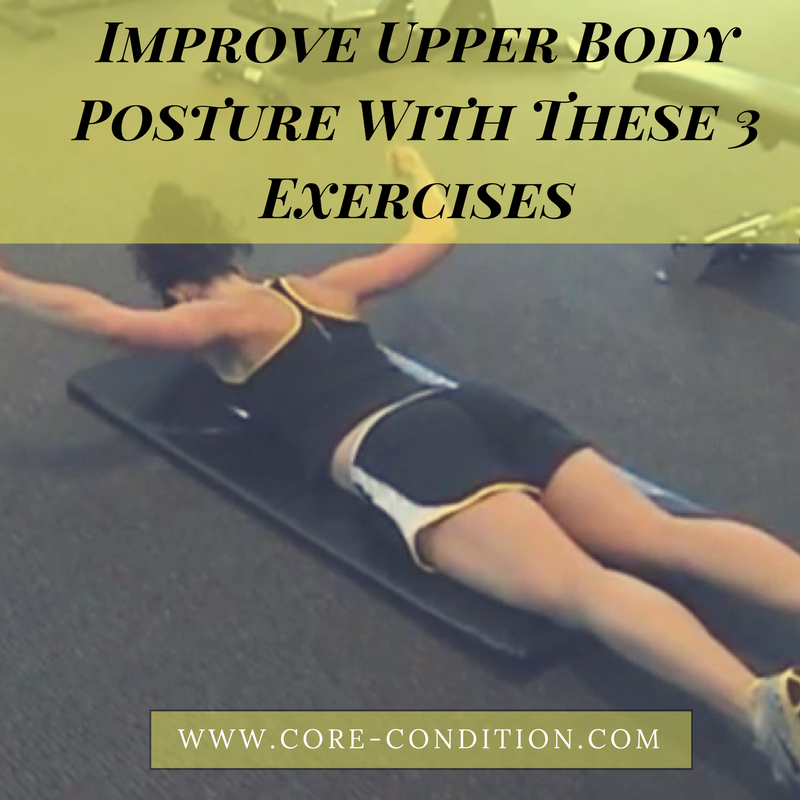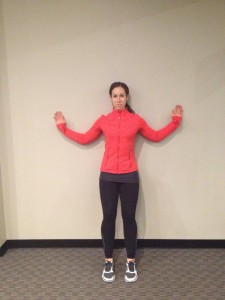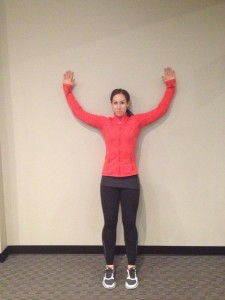- 604-362-9571
- Monday - Sunday
Blog

Improve Upper Body Posture With These 3 Exercises
- by Michelle
- January 28, 2017
Growing up as a kid I remember my mom always telling me to “sit up straight” and “don’t slouch”; however, until I began to learn about how important proper posture is in living a pain-free, injury-free, and more comfortable life, I never really paid much attention to my posture. Now that I have seen severe cases of rounded shoulders, thoracic kyphosis (hunch back), and forward head poke; I understand how crucial postural awareness is in preventing recurring neck and upper back pain often leading to headaches and stiffness. Good posture also aids in good breathing, digestion, and circulation and is very important for health and well-being; it plays into the saying “if you look good you feel good”. If you have a desk job, or sit in the same position for long hours at a time you could potentially be suffering from recurring aching in the muscles of the neck and upper back. In people with poor posture, it is common muscle imbalances are present, for example a significant weakness in the muscles of the upper/mid back and tightness in the muscles of the chest cause the appearance of forward rounded shoulders. If you feel like you need to give your posture a check, read on for more information on how to do so & some exercises to fix it, if necessary.
CHECK YOUR OWN POSTURE:
*Have someone take a picture of you from the side in your natural standing posture. If you see any of these signs in your own posture, your posture might need some attention.
Signs of Poor Posture:
- Head slumping forward and chin not parallel to the ground
- Chest sunken in and signs of a “hunch-back” type of curvature beginning the upper/mid back
- Shoulders rounded forward and ear not in line with middle of shoulder
Recommended Exercises For Improving Posture:
*Perform these exercises at least once daily in combination with neck, chest, and back stretches.
PRONE THUMB RAISE
This exercise strengthens your back to encourage a more upright standing/sitting position. Begin by lying on your stomach on the floor with arms straight and in a “Y” position. Rotate your arms outwards, make a fist, and point your thumbs to the ceiling. Before lifting your straight arms up off the ground, pull your shoulders back and down as if you are squeezing a pencil between them. Move arms up and down for 15 repetitions, remembering to pull your shoulders down before raising the arms in each rep.
DUMBBELL EXTERNAL ROTATION
This exercise is to strengthen the rotator cuff, which is a neglected and very weak muscle in the majority of people. Begin by lying on your right side with the left arm bent at 90 degrees and elbow resting on your left hip. With a light dumbbell in your hand (2-5lbs), lift forearm up by rotating shoulder up and down. Ensure elbow remains in a fixed position throughout the exercise and repeat for 12 to 15 reps on each side.
STANDING WALL ANGELS
This exercises targets the muscles between your shoulder blades and helps improve shoulder range of motion and upper body posture. Begin by standing with your back against a wall and your feet approximately 12 inches from the base with legs straight. Lean against the wall, so that your back and head are pressed against it, and raise arms to your sides at 90 degree angles. Ensure that your shoulders, elbows, and backs of your hands are pressed against the wall. Pull shoulders back and down, press your arms against the wall, and slide the backs of your hands as far up the wall as you can manage before you experience pain or your shoulders are no longer pulled down. Slide your hands back down to starting position and repeat 10 times. You will feel a stretch across the chest and the muscles between the shoulder blades being activated.
One Last Thing:
Keeping a strong core is also very important in improving posture. CLICK HERE to read more about what your core is and 4 exercises to build a stronger core.
TIPS FOR IMPROVING POSTURE:
- Walk/sit with good posture. Keep your chin parallel to the ground and tucked in to chest, shoulders back and down (squeeze the pencil), and chest up
- Do not sit still in the same position for an extended period of time, get up for 5 minutes to stretch or move around for every 1 to 2 hours of sitting.
- Exercise regularly and don’t forget to STRETCH! Exercise keeps muscles strong to provide proper postural support and stretching prevents unnecessary muscle tension and stiffness.
- BE CONSCIOUS of your posture while walking, sitting, and performing your daily activities.
Email Michelle@core-condition.com for videos of the above exercises or more information about improving posture.
Michelle Roots BA Kin, CSCS, PES








